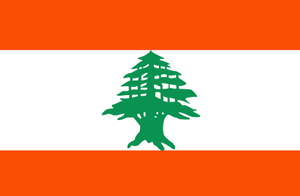Current travel advisories for Lebanon
Hinweis: der Gesamtscore für dieses Land gibt aktuell einen falschen Wert aus. Bitte prüft die Quellen.
Note: the total score for this country shows a wrong value. Please check the sources.
Last Update: Tuesday, 07. May 2024 at 07:59
 Please reconsider your need to travel to Lebanon.
Please reconsider your need to travel to Lebanon.
Anzeige
Current situation : 4.1 / 5
Lebanon is a country in Asia (Western Asia) with around 4 million citizens and a land mass of 10,400 km². We detected travel advisories from 9 sources for this country.
Bordering countries: 4.6 / 5
Lebanon shares land borders with Syria and Israel. For these countries, the individual warning index is 5.0 (Syria) and 4.2 (Israel). See danger map of the region.
Current informationen on Covid-19
The European Centre for Disease Prevention and Control currently reports of no cases of COVID-19 (infection with SARS-CoV-2 or Coronavirus).
Source: www.ecdc.europa.eu
Single advisories / travel warnings
Danger level: 5
Do not travel / Extreme Risk.
Danger level: 3
Avoid non-essential travel to certain areas.
Danger level: 4
.
Danger level: 5
Do not travel.
Danger level: 5
Travel Warning.
Danger level: 5
Avoid all travel.
Danger level: 5
Avoid Travelling..
If there is more than one advisory/message of a single government for a given country, it indicates regional differences in means of security for your personal health and well-being. Single messages can indicate specific regions to be safer or less safe as mentioned in the main advisory. In these cases it's advisable to consult your own governments information. Additional Disclaimer: Since the evaluation is an automated process, it can only provide first steps for your own research. Please make sure to consult the sources.
Advertising
Country information
Country flag

Basic facts
- Citizens
- around 4 million
- Covering landmass
- 10,400 km²
- Electricity
- 230V - 50Hz
- Currency
- Pound (LBP)
- ISO 2-Letter Code
- LB
- Phone prefix
- +961
- Top Level Domain
- .lb
- Mobile frequencies (MHz)
- 900
Airports in Lebanon (extern)
Video
Frequently asked questions
This section gives some brief answers to common questions regarding travel safety in Lebanon.
Is Lebanon safe to travel in 2020?
There are some travel advisories for Lebanon. With a risk index of 4.1 out of 5 possible point, we suggest you consult your local authorities before booking a flight.
How many countries have issued advisories for Lebanon?
We currently know of 9 countries having issued advisories for Lebanon.
 New Zealand government
New Zealand government Cypriot government
Cypriot government US American government
US American government Australian government
Australian government German government
German government Canadian government
Canadian government Finnish government
Finnish government